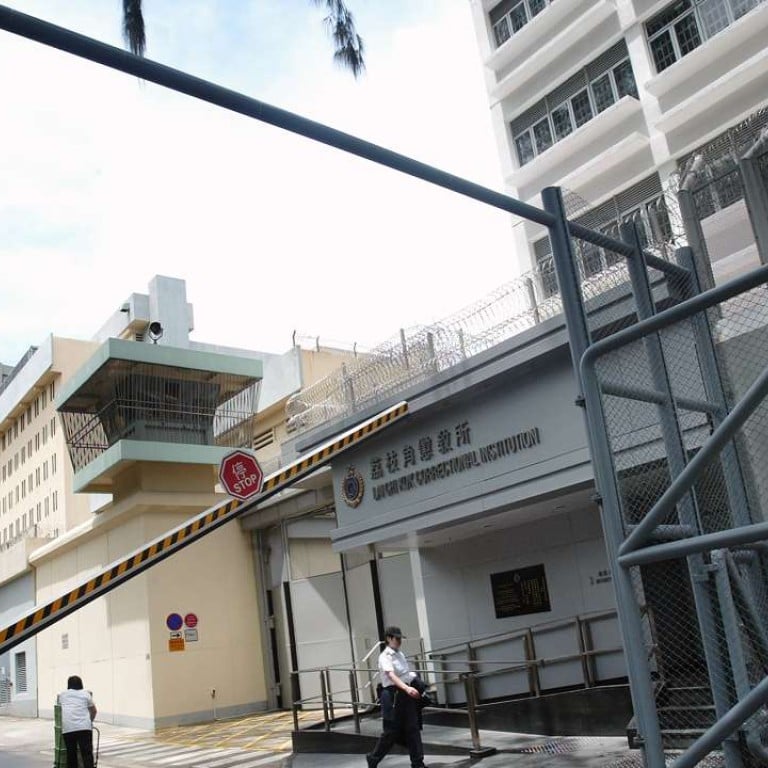
At breaking point: Hong Kong’s largest prison begins transferring inmates amid chronic overcrowding
New figures reveal Lai Chi Kok Reception Centre is 8 per cent overcapacity, with cells designed for two inmates occasionally being used for three
Overcrowding at the city’s largest detention centre has prompted prison authorities to move remand inmates, those awaiting trial, to other correctional facilities across Hong Kong, the Sunday Morning Post can reveal.
Fresh figures from the Correctional Services Department show the penal population at Lai Chi Kok Reception Centre is 8 per cent overcapacity this year.
The centre accommodated a daily population “exceeding” 1,600 people, of a total capacity of 1,484, consisting of remand and convicted prisoners waiting for a transfer to other jails.
The situation has led to cells that are designed to house two inmates occasionally being used for three.
Around 160 prisoners have been moved from Lai Chi Kok Reception Centre to Stanley Prison, but the relocation has been met with some anger, despite the chronic overcrowding.
The action comes after the Post reported the former chief public prosecutor branding long remand times – a contribution to overcrowding – as an “alarming blight”. And prison chaplain Father John Wotherspoon, who has two decades’ experience working in Hong Kong jails, warned Lai Chi Kok was “badly overcrowded” and “not designed” for long-term detentions.
“To alleviate the persistent overcrowding situation in Lai Chi Kok Reception Centre and to optimise the resource allocation, some persons on remand ... have been transferred to Stanley Prison pending court trial,” a CSD spokeswoman said.
“[The] CSD is committed to providing persons in custody with appropriate treatment and basic necessities adequate for maintaining a decent and healthy living.”
While most prisoners left without complaint, one inmate from the United States refused to transfer and according to witnesses was described as “kicking and screaming” and “violent” when officers with riot shields removed him.
A prisoner in Lai Chi Kok said: “Some are OK with the move to Stanley. People will be able to work, move, and have more freedom.”
Some problems emerge with a number of families now facing longer journeys to see incarcerated relatives – the facilities are 29km apart and the journey between the two takes more than an hour – and bills for private food to supplement prison meals will triple to HK$6,000 a week, inmates say.
Of the impact of prisoner transfers on overcrowding, the inmate said: “It has always been overcrowded, cramped, with people sleeping on top of everybody. I don’t see any change, it’s the same every day.”
The source of the issue stems from the Judiciary, where the average time for a criminal trial in the Court of First Instance crept up to 272 days last year, from 227 in 2014, against a target of 120 days.
At least eight prisoners – from South America – had to wait 26 months from their arrest and detention to eventual trial.
Such time in detention is deducted from the inmates’ sentences, but Grenville Cross SC, director of public prosecutions from 1997 to 2009, said there was “scant consolation for those who are ultimately acquitted, but who will nonetheless have lost their liberty for substantial periods before their innocence is established”.
“This will improve conditions for inmates and staff,” Wotherspoon said. “The prolonged judicial process is not the CSD’s fault. The CSD are left holding on to the baby for longer than they should be.”

